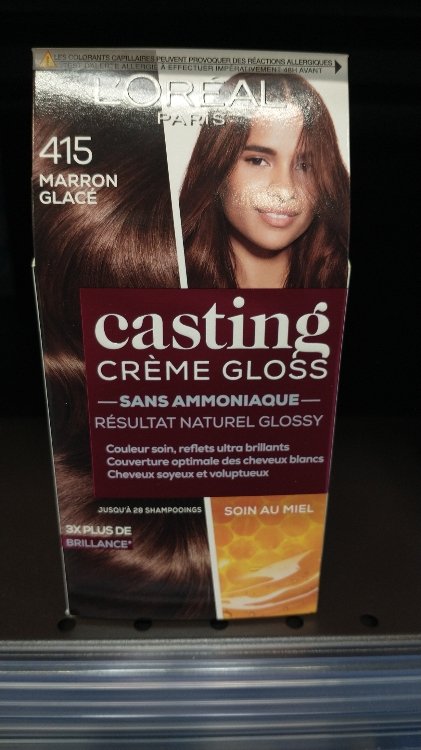
L'Oréal Paris Casting Cream Gloss 415 Lot de 3 flacons de crème hydratante Chocolat glacé : Amazon.fr: Beauté et Parfum

L'Oréal Casting Creme Gloss Teinture de couleur capillaire semi-permanente - Chocolat glacé 415 | Fruugo FR

L'ORÉAL PARIS CASTING Crème Gloss 5102 chocolat givré Couleur Cheveux Coloration EUR 6,00 - PicClick FR

L'Oréal Paris Casting Crème Gloss Coloration Ton sur Ton pour Cheveux - Sans Ammoniaque - Chocolat Glacé (515) - Lot de 2 : Amazon.fr: Beauté et Parfum






















